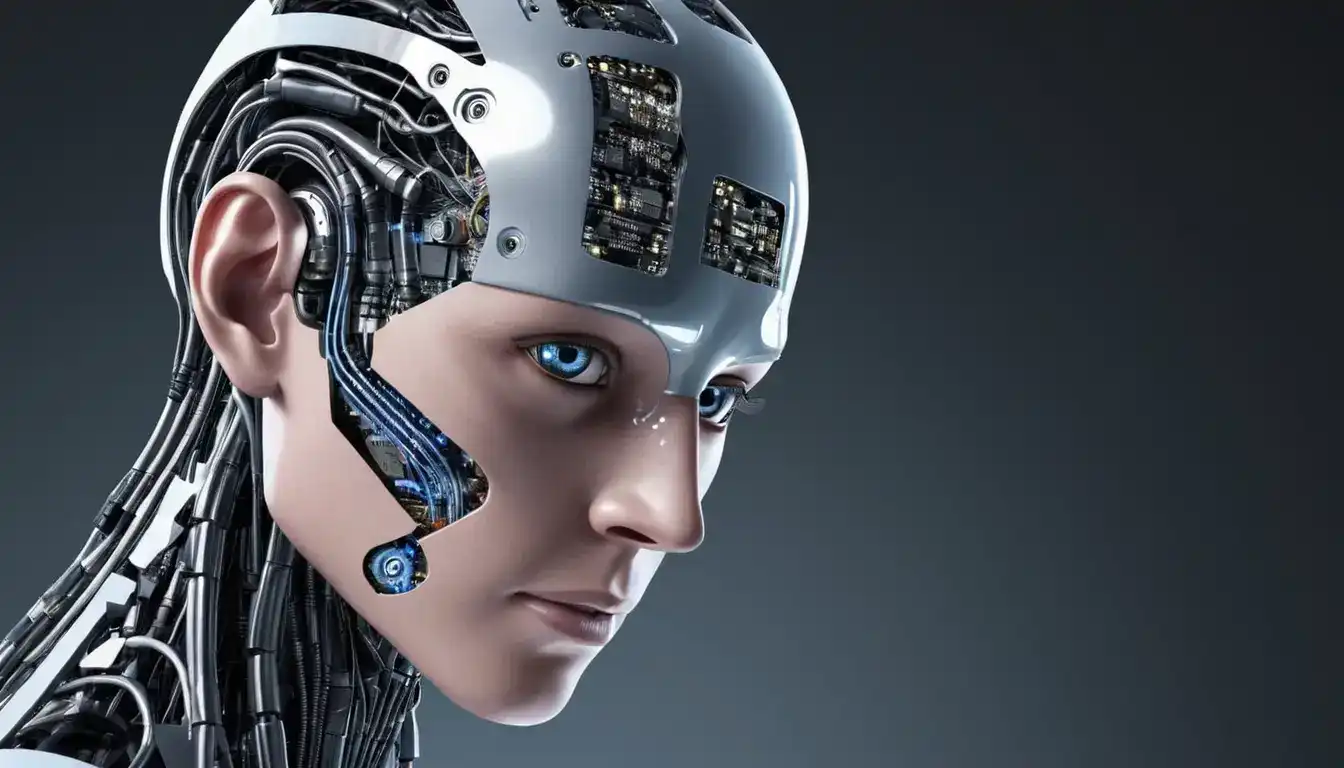The Future of Blockchain and Its Impact on Society
Emily Willis

Photo: The Future of Blockchain and Its Impact on Society
Blockchain technology, originally devised as the underlying framework for cryptocurrencies like Bitcoin, has evolved into a versatile tool with the potential to revolutionize numerous industries beyond finance. Its decentralized and transparent nature offers solutions to various challenges faced by societies worldwide. As blockchain continues to mature, its impact on society is poised to be transformative across multiple domains.
Evolution Beyond Cryptocurrency
While blockchain's initial applications centered around digital currencies, its potential extends far beyond finance. Blockchain operates as a decentralized ledger that records transactions across a distributed network of computers. This technology ensures transparency, immutability, and security, making it suitable for diverse applications in sectors such as healthcare, supply chain management, voting systems, and intellectual property protection.
Enhanced Security and Data Integrity
One of the most significant advantages of blockchain technology lies in its robust security features. Traditional centralized databases are vulnerable to hacks and data breaches, whereas blockchain's decentralized structure and cryptographic algorithms make it inherently secure. Each transaction recorded on the blockchain is immutable and timestamped, reducing the risk of fraud and tampering. This enhanced security can revolutionize data management practices across industries, ensuring trust and integrity in digital interactions.
Decentralization and Empowerment
Blockchain's decentralized nature eliminates the need for intermediaries in transactions, thereby reducing costs and enhancing efficiency. This aspect holds profound implications for sectors reliant on intermediaries, such as banking, real estate, and legal services. By decentralizing control and democratizing access to resources, blockchain empowers individuals and businesses to participate in global economic activities more inclusively.
Supply Chain Transparency and Efficiency
In supply chain management, blockchain facilitates transparent and traceable tracking of goods from their origin to the end consumer. By recording each transaction and movement on an immutable ledger, blockchain enhances accountability and reduces counterfeit products and fraud. This transparency not only improves operational efficiency but also enhances consumer trust and promotes sustainability by enabling better resource management and ethical sourcing practices.
Revolutionizing Digital Identity and Privacy
Blockchain technology offers solutions to challenges related to digital identity and privacy. Through decentralized identity platforms, individuals can securely manage their digital identities without relying on centralized authorities. Blockchain-based authentication mechanisms ensure privacy and data sovereignty, mitigating risks associated with identity theft and unauthorized access. This innovation is pivotal in fostering a digital ecosystem where individuals have greater control over their personal information.
Democratizing Access to Financial Services
Blockchain-powered financial services, known as decentralized finance (DeFi), are reshaping the traditional banking landscape. DeFi platforms enable peer-to-peer lending, borrowing, and trading of digital assets without intermediaries. This decentralized approach provides financial services to underserved populations worldwide, offering alternatives to traditional banking systems and promoting financial inclusion.
Challenges and Adoption Barriers
Despite its potential, blockchain technology faces several challenges and adoption barriers. Scalability issues, interoperability between different blockchain networks, regulatory uncertainties, and energy consumption in proof-of-work consensus mechanisms are significant hurdles that need addressing. Overcoming these challenges requires collaborative efforts from technology developers, policymakers, and industry stakeholders to foster innovation while ensuring regulatory compliance and sustainability.
Conclusion: Embracing a Blockchain-Enabled Future
As we look ahead, the future of blockchain holds promise for driving societal transformation across various domains. From enhancing security and transparency in transactions to revolutionizing supply chain management and digital identity, blockchain's impact will be profound and far-reaching. Embracing blockchain technology entails addressing technical challenges, fostering regulatory clarity, and educating stakeholders about its potential benefits. By doing so, we can harness blockchain's transformative power to create a more secure, efficient, and inclusive society.
In conclusion, the future of blockchain is characterized by innovation, disruption, and societal empowerment. As blockchain technology matures and evolves, its impact on society will continue to expand, offering solutions to longstanding challenges and unlocking new opportunities for global progress.
Latest ✨
View AllArtificial Intelligence (AI) has evolved rapidly from science fiction to reality, offering immense potential but also presenting significant ethical challenges.
Emily Willis
Virtual reality (VR) and augmented reality (AR) are transforming the entertainment industry by offering immersive experiences that blur the lines between the real and virtual worlds. VR completely transports users into computer-generated environments, while AR overlays digital elements onto the real world.
Emily Willis
In today's job market, academic qualifications alone are not enough for success. Employers value soft skills such as communication, leadership, and teamwork. Educational settings provide opportunities for students to develop these skills. Strong communication skills enable effective collaboration and understanding. Presentation and public speaking skills enhance professionalism and credibility. Leadership skills involve setting goals, making decisions, and inspiring others. Teamwork skills are important for building relationships and achieving shared goals. Developing these skills in an educational environment prepares individuals for successful careers by enhancing employability and job readiness. Soft skills development is an ongoing process that promotes continuous learning and growth. By emphasizing the importance of soft skills, educational institutions empower students to succeed in a complex and interconnected world.
Emily Willis
fostering a love of reading in early childhood and provides practical tips to achieve this. It emphasizes starting early, making reading fun and interactive, integrating reading into daily activities, and addressing challenges with reluctant readers.
Emily Willis
Business
View All
August 5, 2024
The Importance of Having Insurance to Protect Yourself and Your Assetsinsurance in protecting individuals and businesses from financial losses due to unforeseen events. It explains the different types of insurance available, such as health, life, auto, homeowners, renters, disability, and liability insurance, and their benefits.
Emily Willis

August 5, 2024
How to Create Engaging Content and Convert Visitors to Customerscreating engaging content to attract and retain customers in the digital age. It provides strategies for understanding the audience, setting content goals, creating high-quality content, using storytelling and emotional connection, and optimizing content for conversions. It also covers content formats and distribution, measuring and analyzing content performance, and building relationships with influencers and user-generated content.
Emily Willis

August 4, 2024
How to Build a Strong Brand Identity for Your BusinessBuilding a strong brand identity is essential for business success as it helps differentiate you in the market, connect with your audience, and build loyalty. Key steps include understanding your target audience, defining your mission and values, developing a unique selling proposition, creating a memorable brand name and logo, choosing brand colors and typography, crafting a brand voice and messaging, ensuring a consistent brand experience, leveraging visual content.
Emily Willis
Economy
View Allchallenges and opportunities presented by economic uncertainty and explores strategies that governments and businesses can implement to mitigate risks, ensure stability, and pave the way for future success.
Read MoreGlobal inequality refers to the unequal distribution of wealth, income, and opportunities across the world, leading to economic, social, gender, and regional disparities. The consequences of this inequality are widespread, impacting social unrest, political instability, economic stagnation, and environmental degradation.
Read MoreDiscover the hidden connections that drive global stock markets. Explore stock correlations, their impact on diversification and risk, and how to calculate them. Learn how to apply this knowledge to your investment strategy and uncover secrets to making more informed decisions.
Read MoreEntertainment
View All
August 5, 2024
Music Universal Language: Connecting and Inspiring Across CulturesMusic has the power to transcend language barriers and connect people on a deep emotional level. It serves as a bridge between cultures, fostering understanding and appreciation for diversity. The universality of rhythm and melody creates a sense of unity, while the diversity of musical styles allows for exploration and creativity.
Emily Willis

August 4, 2024
Virtual Music Concerts: The Future of Live Performance?The music industry has seen significant changes in recent years, with virtual music concerts becoming a popular trend, especially due to the impact of the COVID-19 pandemic. Technological advancements have made virtual concerts more accessible and cost-effective, while also reducing the environmental impact of live events. However, challenges such as technical issues and the lack of physical presence remain. The future of virtual concerts may involve hybrid models that combine virtual and physical experiences, as well as continued technological innovation to enhance the quality of virtual performances. Building a sense of community and engagement will also be crucial for the success of virtual concerts moving forward.
Emily Willis

August 4, 2024
The Latest Music Trends, Artists Influencing Pop Culture, and How Digital Platforms Facilitate the Distribution of Music GloballyThe music industry is constantly changing due to consumer preferences, technology, and the influence of artists. Digital platforms have revolutionized music creation, distribution, and consumption, leading to genre fusion, the rise of independent artists, and collaborative projects. Influential artists like Billie Eilish, BTS, and Taylor Swift have shaped pop culture globally. Streaming services, social media, and direct-to-fan engagement have transformed music distribution. Digital platforms also promote cultural diversity and inclusivity, expand markets and revenue, and drive technological advancements. The industry is also focusing on sustainability and ethical practices. To succeed in the future, stakeholders must embrace digital transformation and champion inclusivity.
Emily Willis
Health
View AllA healthy lifestyle is crucial for enhancing overall quality of life in today's fast-paced world. It involves habits such as a nutritious diet, regular exercise, adequate sleep, stress management, and avoiding harmful substances. Benefits include improved physical health, enhanced mental well-being, increased energy levels, better sleep quality, and longevity. Implementing healthy habits gradually, staying consistent, seeking support, and monitoring progress are key steps towards a healthier lifestyle. Prioritizing a healthy lifestyle is not just about adding years to life but about adding life to years, leading to a more fulfilling and vibrant life.
Emily Willis
cultivating healthy lifestyle habits to improve overall well-being. It focuses on three pillars of well-being: nutrition, exercise, and sleep. It provides tips on how to incorporate these practices into daily routines, such as eating a variety of foods, finding enjoyable forms of exercise, and establishing a consistent sleep schedule.
Emily Willis
Heart disease is a leading cause of death globally, but early detection and prevention strategies can reduce its impact. This article discusses the importance of early detection, common risk factors, preventive measures, and lifestyle changes for heart health. Understanding heart disease, recognizing symptoms, and undergoing regular screenings are crucial. Common risk factors include high blood pressure, high cholesterol, diabetes, smoking, obesity, physical inactivity, and family history. Symptoms of heart disease include chest pain, shortness of breath, fatigue, irregular heartbeat, and swelling. Diagnostic tests and screenings include blood pressure measurement, cholesterol screening, blood glucose test, ECG, stress test, and imaging tests. Preventive measures include adopting a heart-healthy diet, regular physical activity, quitting smoking, managing stress, maintaining a healthy weight, and limiting alcohol consumption. Medications and treatment options may be necessary for individuals at high risk or diagnosed with heart disease.
Emily Willis
Trending 🔥
View All
2
3
4
5
6
7
9
10
Lifestyle
View AllSports
View AllAugust 4, 2024
The Importance of Mental Training and Psychological Strategies in Helping Athletes Reach Their Peak Performance on the Field
Read MoreAugust 5, 2024
Celebrating Sports Legends: Honoring Iconic Figures and Their Enduring Impact
Read MoreTechnology
View All
August 4, 2024
The Future of Artificial Intelligence: Opportunities and Challenges
opportunities and challenges presented by Artificial Intelligence (AI) in various sectors such as efficiency, customer experiences, healthcare, education, and economic growth. It highlights the need to address ethical considerations, job displacement, privacy issues, security risks, and regulatory challenges associated with AI.

August 4, 2024
Bridging the Digital Divide: Ensuring Everyone Has Access to Technology
we can bridge this gap and create a more inclusive digital landscape.

August 4, 2024
The Role of 5G Technology in Revolutionizing Communication
The introduction of 5G technology is set to revolutionize communication by offering faster speeds, lower latency, and increased capacity for connecting devices. This technology will impact various sectors such as healthcare, transportation, and entertainment. 5G enhances communication through faster speeds, lower latency, and increased capacity, enabling applications like remote surgery, autonomous vehicles, and high-quality streaming.

August 4, 2024
Role of Cloud Computing Technology in Modern Business
Cloud computing technology has become essential for modern businesses, offering cost efficiency, scalability, and flexibility. It enables streamlined processes, enhanced productivity, and improved collaboration among employees. Cloud computing also ensures data security, disaster recovery, and business continuity. By migrating to the cloud, businesses can streamline IT operations, enhance customer experiences, access advanced technologies, and reach a global audience. Real-world applications of cloud computing include e-commerce, healthcare, financial services, manufacturing, and education.





















